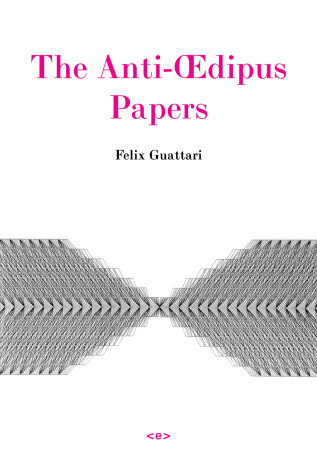Notes and journal entries document Guattari and Deleuze's collaboration on their 1972 book Anti-Oedipus."The unconscious is not a theatre, but a factory," wrote Gilles Deleuze and Félix Guattari in Anti-Oedipus (1972), instigating one of the most daring intellectual adventures of the last half-century. Together, the well-known philosopher and the activist-psychiatrist were updating both psychoanalysis and Marxism in light of a more radical and "constructivist" vision of capitalism: "Capitalism is the exterior limit of all societies because it has no exterior limit itself. It works well as long as it keeps breaking down."Few people at the time believed, as they wrote in the often-quoted opening sentence of Rhizome, that "the two of us wrote Anti-Oedipus together." They added, "Since each of us was several, that became quite a crowd." These notes, addressed to Deleuze by Guattari in preparation for Anti-Oedipus, and annotated by Deleuze, substantiate their claim, finally bringing out the factory behind the theatre. They reveal Guattari as an inventive, highly analytical, mathematically-minded "conceptor," arguably one of the most prolific and enigmatic figures in philosophy and sociopolitical theory today. The Anti-Oedipus Papers (1969-1973) are supplemented by substantial journal entries in which Guattari describes his turbulent relationship with his analyst and teacher Jacques Lacan, his apprehensions about the publication of Anti-Oedipus and accounts of his personal and professional life as a private analyst and codirector with Jean Oury of the experimental clinic Laborde (created in the 1950s).
- ISBN10 1584350318
- ISBN13 9781584350316
- Publish Date 3 March 2006
- Publish Status Active
- Publish Country US
- Imprint Semiotext(e)
- Format Paperback (US Trade)
- Pages 384
- Language English
- URL https://penguinrandomhouse.com/books/isbn/9781584350316
